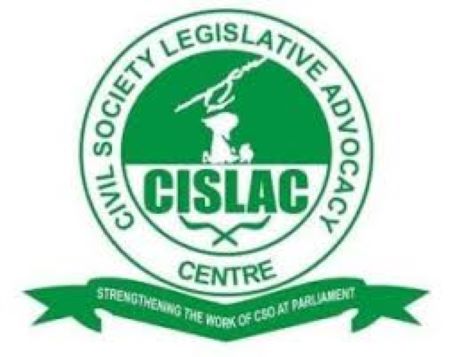ASHENEWS reports that the Civil Society Legislative Advocacy Centre (CISLAC), the Transparency International (TI) Nigeria chapter, has unveiled comprehensive recommendations to tackle the pervasive corruption hindering Nigeria’s socio-economic progress.
These proposals were contained in a statement issued by CISLAC’s Executive Director, Auwal Rafsanjani to commemorate the 2024 International Anti-corruption Day.
CISLAC, which lamented that corruption serves as the root cause of systemic failures and deepening poverty, insecurity, and underdevelopment in Nigeria called for reforms to key anti-corruption institutions such as the Economic and Financial Crimes Commission (EFCC) and the Independent Corrupt Practices Commission (ICPC).
It also proposed granting operational autonomy and ensuring the security of tenure for leadership positions to prevent political interference.
The organization also proposed stricter measures to ensure transparency in political campaign financing and penalties for vote-buying and electoral malpractices.
To combat the crisis in the education sector, CISLAC recommended increased investment in infrastructure, teacher training, and addressing the challenge of “sextortion” in academic institutions.
For Nigeria’s healthcare sector, the organization advocated for allocating at least 15% of the national budget to improve the doctor-to-patient ratio and bolster medical infrastructure, particularly for Nigeria’s 4.3 million internally displaced persons (IDPs).
CISLAC further noted that the Public Procurement Act was a key tool to enhance transparency in government projects. CISLAC urged strict enforcement and regular audits to ensure funds reach local communities effectively.
Similarly, financial institutions were urged to adopt robust measures against money laundering and terrorism financing.
“The banking sector must be held accountable for its role in money laundering and financing terrorism. Financial institutions should be compelled to fully implement Know Your Customer (KYC) protocols and penalized for failing to do so.
“The use of digital systems, including enhanced monitoring of BVN activities, should be prioritized to detect fraudulent financial transactions and prevent the misuse of financial services by corrupt individuals and criminal organizations.
“The Nigerian government should roll back laws that inhibit free speech, ensuring the protection of journalists, activists, and citizens who expose corruption. Public awareness campaigns should be launched to educate the population on their rights and corruption reporting mechanisms.
“Furthermore, anti-corruption legislation should be strengthened, addressing gaps in asset declarations, public procurement transparency, and anti-money laundering frameworks.
“These recommendations are essential for creating a transparent, accountable, and fair system in Nigeria, which can lay the foundation for sustainable economic growth and social equity. Implementation of these reforms will require concerted efforts from both the government and civil society to ensure that the benefits of Nigeria’s wealth are equitably shared,” the statement added.
CISLAC further lauded Nigeria’s anti-corruption agencies for their relentless efforts in combating corruption despite severe political control, limited resources, and personal risks.
“Many of these individuals have faced threats to their lives for their work, underscoring the huge sacrifices they make daily to safeguard Nigeria’s future.
“It is imperative that Nigerians collectively support these agencies to ensure they deliver optimally.”


